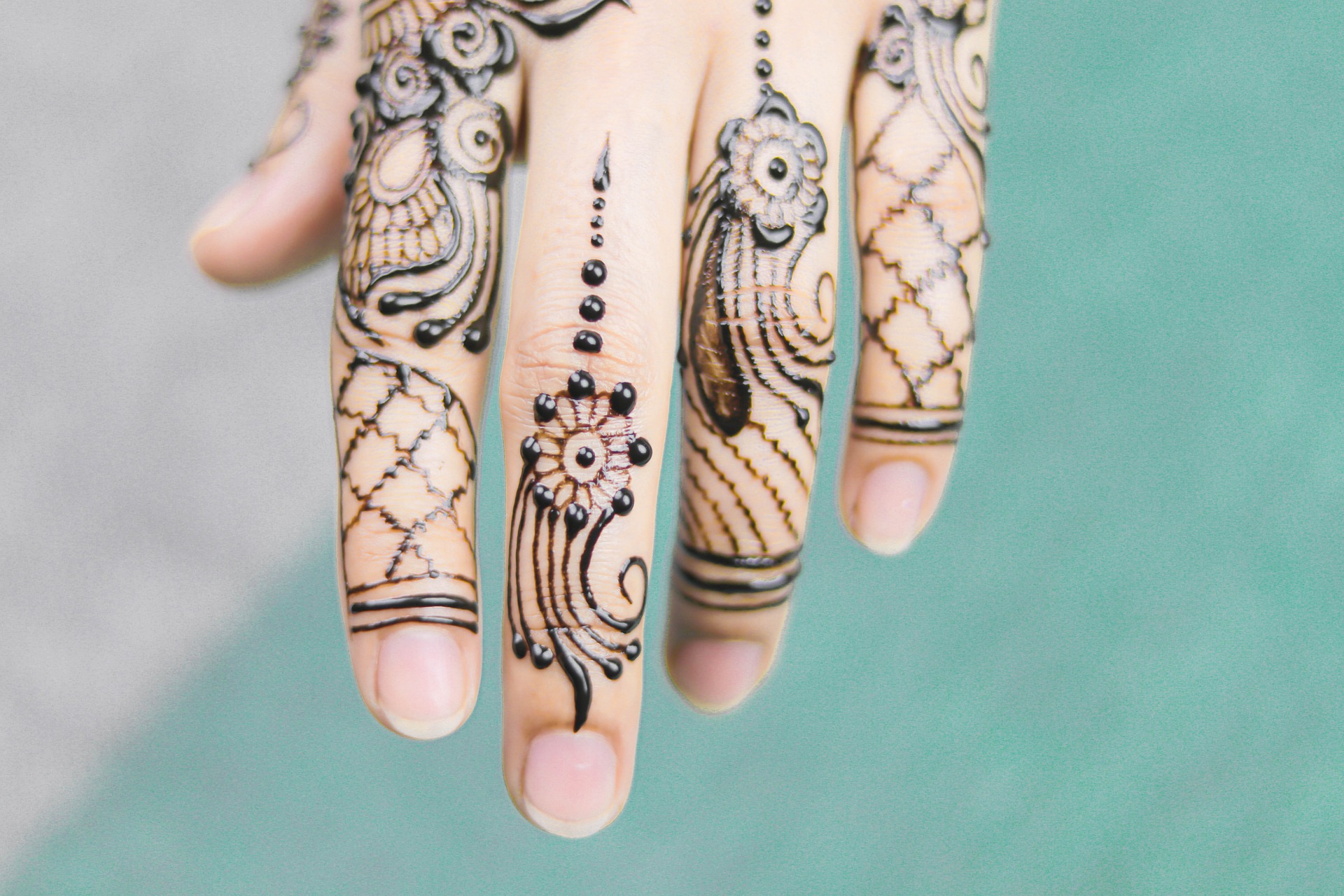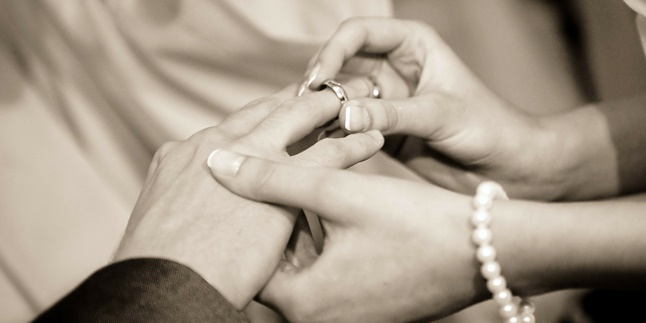Kapanlagi.com - According to the Kamus Besar Bahasa Indonesia (KBBI), the definition of nikah siri is a marriage witnessed only by a religious official and a witness, not through the Office of Religious Affairs, and is considered valid according to Islamic law. If we refer to this definition, it seems that nikah siri is far from the joyful image that everyone has when getting married.
Although considered valid in terms of religion, nikah siri, which seems to take place in secrecy, has many negative impacts. In addition to not complying with state regulations, such marriages are also vulnerable to harming family members. Unfortunately, because they lack legality, family members (husband, wife, children) who are harmed cannot obtain their rights.
Now, for those of you who want to know more about nikah siri, please read the following information. Besides being useful for knowledge, this can also be a consideration before you take the step towards marriage.
1. Hukum Nikah Siri

Illustration (Credit: Pixabay)
Although nikah siri is considered valid according to religion, it is not considered valid if not recorded by the state.
Based on Marriage Law No. 1 of 1974 Article 2, the following are the laws of marriage in Indonesia.
(1) Marriage is considered valid if conducted according to the laws of each religion and belief.
(2) Every marriage is recorded according to applicable laws.
If a marriage does not have a marriage certificate and official documents as a form of marriage legality according to the above law, then the marriage is considered invalid in the eyes of the state law.
2. Requirements for Nikah Siri

Illustration (Credit: Pixabay)
Considering that the meaning of nikah siri in Islam is a valid religious marriage, the requirements for nikah siri are the same as the requirements for marriage in general. In Islam, marriage is considered valid if it fulfills the five pillars of marriage. In addition, there are also requirements that must be met by the prospective bride and groom. Read the complete requirements for marriage in the following explanation.
According to information from Nu Online, Imam Zakaria al-Anshari in Fathul Wahab bi Syarhi Minhaj al-Thalab (Beirut: Dar al-Fikr), volume II, page 41, the pillars of marriage are:
"Articles about the pillars of marriage and others. There are five pillars of marriage, namely the groom, the bride, the guardian, two witnesses, and the shighat."
1. Pillars of Marriage
- Prospective husband
- Prospective wife
- Marriage guardian for the prospective female bride
- 2 marriage witnesses
- Shigat (including ijab and qabul)
2. Requirements for Prospective Male Bride
- Islamic religion
- Male gender and not transgender
- Not engaging in forced nikah siri
- Does not have 4 wives
- The prospective wife to be married is not a mahram
- The marriage is not conducted during the state of ihram or umrah
3. Conditions for Female Bride
-Must be a Muslim
-Must be female and not transgender
-Must have obtained marriage permission from a valid guardian
-The female bride must not be someone else's wife
-Must not be in the waiting period (iddah)
-The prospective husband must not be a mahram
-The marriage should not be conducted during the state of ihram or umrah
By observing the conditions for prospective brides mentioned above, there are differences between the requirements for men and women. For men, there is a point of "Not engaging in forced secret marriage", while for women, it is only "Having obtained marriage permission from a valid guardian".
This indicates the vulnerability of women in this practice. Women are at risk of experiencing injustice in secret marriages.
Therefore, it is important for every couple to register their marriage legally to at least have legal protection in case of unwanted circumstances. Negative impacts of secret marriages often occur. For more detailed explanations, you can refer to the following information.
3. Story of Nikah Siri

Illustration (Credit: Pixabay)
The practice of nikah siri may have been heard frequently in Indonesia. Actually, the practice of nikah siri has a quite long story in various countries, not only in Indonesia and not only practiced in Islam.
In 2013, in Zimbabwe where the majority of its citizens adhere to Christianity, 84 percent of marriages were unregistered. As a result of nikah siri, polygamy is also prevalent there.
Nikah siri has different types and names in Iraq, namely mut'ah and misyar. Mut'ah is a marriage that is carried out for a certain period or can be called a temporary marriage, while misyar is a marriage that is generally done to fulfill sexual needs so that the husband and wife can live separately and meet at certain times.
In misyar marriages, women are at a great risk of experiencing disadvantages. They are seemingly forced to accept if their rights are not fulfilled because husbands usually prioritize their legal wives.
4. The Impact of Nikah Siri

Illustration (Credit: Pixabay)
The negative impact of nikah siri (unregistered marriage) was once discussed in the Muslimat NU National Conference held by the Bahtsul Masail Commission in Jakarta in 2015. Quoting from NU Online, Prof. Chuzaemah, as the Fatwa Commission of the Indonesian Ulema Council (MUI), said that the practice of nikah siri could lead to an increase in polygamy. He also shared a story related to nikah siri that he had encountered.
"When I was an expert witness in the Constitutional Court, I was asked by the polygamy plaintiffs, why does the state regulate polygamy which is already regulated in the Qur'an?" he said.
Chuzaemah answered by giving an analogy to the issue of hajj. Hajj is the obligation of every Muslim, so why does the government regulate passports and other things? Even though it is considered a personal obligation. "To avoid getting lost, and there is someone responsible if something unwanted happens," he continued.
This proves that although nikah siri is considered valid in the eyes of religion, it should be avoided as much as possible. This means that every couple who gets married needs to register it legally according to Indonesian law. By doing so, both husband and wife can have legal assurance in carrying out their rights and obligations.
The negative impacts of nikah siri are also stated by Irfan Islami in the journal "Perkawinan di Bawah Tangan (Kawin Sirri) dan Akibat hukumnya" as follows:
- The woman cannot demand her rights as a wife that have been violated by her husband because there is no legal force that remains on the legality of the marriage.
- Matters related to the issuance of ID cards, family cards, passports, and birth certificates for children cannot be processed due to the absence of marriage proof in the form of a marriage certificate.
- Nikah siri tends to make one of the couples, especially the husband, more free to abandon his obligations.
- The high incidence of violence against wives.
- Can affect the psychology of the wife and children.
So, that is the discussion about nikah siri, starting from the understanding, laws, requirements, to its negative impacts. Hopefully, it can be a consideration for those of you who intend to get married.
(kpl/ans)
Disclaimer: This translation from Bahasa Indonesia to English has been generated by Artificial Intelligence.
















